Bibiana Steinhaus-Webb exclusive: PGMOL’s women’s select group director gives unique insight into refereeing in women’s football | Football News
In an honest and intriguing Sky Sports exclusive, Bibiana Steinhaus-Webb – the PGMOL’s first women’s select group director – discusses refereeing in the women’s game and how it can continue to be improved.
Steinhaus-Webb paved the way for women’s referees in her own career and was appointed in August to oversee the officiating in the Women’s Super League and Women’s Championship this season.
In a rare sit-down interview with Sky Sports’ lead WSL presenter Caroline Barker on Inside the WSL – which you can watch from 6.30pm on Sky Sports Premier League on Thursday – she opens up on how the PGMOL is supporting WSL officials, whether VAR and other technology could be introduced in the women’s game and the upcoming Women’s European Championships in England.
Plus, we are given a unique insight into how officiating teams discuss and make their decisions during matches. Referee Emily Heaslip wore a microphone during the recent WSL meeting between Chelsea and Reading and shows how she communicates with assistant referees Ceri Williams and Georgia Ball and fourth official Louise Saunders.
Barker: It’s odd because a year or so ago, we wouldn’t be here talking, the game itself wouldn’t have advanced to the stage where we’re here. How important is it for you that you’re here, you’re involved and also that we’re at the PGMOL?
Steinhaus-Webb: We are on an amazing journey in the women’s game. Everybody wants to develop the women’s game as much as possible and us as referees want to keep up with it and develop ourselves in the best way possible. I’m so happy that we can be here today to talk about that, what we’re all doing, what we’re all putting in there, how much effort the girls are putting in there to be the best at 3pm kick-off time.
Barker: Is that why you got involved?
Steinhaus-Webb: The strategy around the women’s game was convincing. The real will to develop the women’s game and put structures and strategies around it, to make that happen. The teamwork from all stakeholders has absolutely convinced me to come over and help the referees here to grow.
Barker: Now you’re here and seen it, have they lived up to that?
Steinhaus-Webb: Absolutely. Not only the competition department not only the league, the FA and PGMOL as well. They have promised a lot of support and here we are, putting a lot of support around the female officials in the women’s game to make sure that they benefit from the professional structure of the PGMOL in the best way possible and can live their dream to become the best they can be.
Barker: Do you look at the group and think ‘this is a great group who are going to excel’?
Steinhaus-Webb: We have an amazing bunch of officials. We have 32 female officials within the women’s game, but we have a lot of male supporters as well, which is really great. The teamwork in-between is perfect, I couldn’t ask for more.
We are at a stage where all the needs to step up within the PGMOL, within the professionalism of the game, the demands on the referees are so much bigger than before. So we are having regular online meetings, the fitness surgery is outlined so the officials have to work incredibly hard to meet the standards all the time.
We have psychological support for them throughout the game and it’s a really demanding season. The growth of the game and with the TV minutes and with all these demands and exposure which the game has – which is brilliant – it puts a lot of stress and pressure on the officials as well. We make sure they stay healthy, not only physically, but as well as mentally.
Barker: When you are looking at people to go on and be officials, are you talking to them about what that exposure might mean for their mental health as well?
Steinhaus-Webb: Absolutely, we have a team supporting the off to build their personal strategies to deal with these situations.
We have officials who can’t wait to be live on TV, to have as many cameras and as many spectators there because they are feeling that they’re ready to show the world what they are capable of doing because this is what they’ve worked their whole life for, to be here and to prove that this in the right place.
But we also have officials who are not used to all the cameras, attention and noise around the 90 minutes. To help them to find them their personal strategy to deal with it and get used to being recognised, being the role model they have asked to be and want to be. By getting all these bits and pieces together to make a holistic personality is crucial and we want to get it right because we care about the people.
Barker: Do you talk to them about how you dealt with that?
Steinhaus-Webb: Absolutely, we are sharing these experiences. Rebecca Welch, now being the top official in the country and refereeing in the men’s game, that is brilliant. She is this role model being on TV that every girl and woman in the country is looking up to.
It’s brilliant and wonderful being in this position and inspiring the next generation of officials coming through. But it’s not only pleasure, it’s a lot of responsibility as well because everyone is looking at out and everybody wants you to get it right.
So you are not only carrying your personal weight on your shoulders, but also the weight of every female official who wants to walk in your shoes at some point in their life.
Barker: How do we make it so people want to do that? You will know about social media and we’ve had controversies already this season in the WSL this season when it comes to officiating…
Steinhaus-Webb: I think it’s very important that we reflect on every post we put out there, every individual. It’s so easy on social media blaming others and if you think you can do better, you’re more than welcome to join the referee family. Give it a go, if you think if you can do it better, come on and prove it.
Secondly, the question for the referee is always ‘if I take a step back and I reflect on the decisions I made and talking that through with coaches, I trust reflectively on the next day, would I make the same decision again with the same information I had at the time?’
If you can answer that question with a yes, because this has been my rationale behind it, then I think you are in a really good place.
Barker: We’ve had handballs not given, sending offs that retrospectively, weren’t sending offs. How does that process work?
Steinhaus-Webb: Interestingly, in the Women’s Super League and Women’s Championship, we have 264 fixtures all around the season and in every single match, a referee is making up to 300 decisions.
So roughly we could talk about 79,000 decisions throughout a whole season and we are talking about two handfuls of crucial decisions that could have been managed differently. We definitely should talk about them, but we should talk about them with the thought of [a lot of] decisions doing really well.
Barker: What if it switches a point that might decide a title or a relegation place, for example?
Steinhaus-Webb: It weighs heavy on the teams, it does. We will always have these decisions that retrospectively might have been dealt with differently that because that is football and the beauty of the game, right? This is why we have these discussions with our colleagues at 9am on a Monday during a coffee break to discuss these things.
With the technical support in the men’s games, these discussions go down, but we still have it in the women’s game where we have these discussions, we should have them and most importantly, it is why it could have happened, what went wrong, what can we do different the next time to get the right call at the right time and how do we progress these things thing and what have we done to support the officials to make the right call at the right time.
They are working with referee coaches to help them to get in the best position, to make the right call, to get the best angle for the situation. We have the fitness support and the physiological support behind and we have different platforms where the officials can have a look at all the matches that have been played before – not only in the WSL and Women’s Championship, but in the EFL and Premier League too – to learn from others and other situation that help them to get the decisions right in their own matches.
Barker: Technology wise, what support do you want to see in the women’s game and how far off it do you think we are?
Steinhaus-Webb: We have seen that it has developed the men’s game really well. We are really open to the women’s game, we are in close contact with the competition department to analyse where we are at the moment, how the future could look and how we can progress together and get things in place to develop the game in the best way possible.
The decision is not really up to us if it comes in on or, but one thing is for certain, whatever we decide together, we will be ready to deliver what needs to be delivered from a refereeing perspective to get it right.
Barker: Do any of your officials want to come out and talk about certain decisions? Would that openness work within the game?
Steinhaus-Webb: We never stop anybody from going out and sharing their experience. In the heat of the moment, it doesn’t necessarily help.
What we do is, and what we have changed massively, we have opened our doors. Everybody is welcome behind the scenes, to listen to the comms of the referee team, what is said, why is it said, what is the crucial bit of information that needs to be shared in the referee team.
We are a very open group and everybody is invited to come and join our meetings. Actually, the stakeholders and the teams are doing it, they’re joining in and getting in touch with the referees. We are all working on the same product so it’s important to change the angle to the game and to change the shoes you’re walking in to try and understand your colleagues in another way.
Barker: How far are we from having professional officials in the women’s game?
Steinhaus-Webb: I think it’s very important for every official to have the time and commitment and possibility to train appropriately, to prepare appropriately, to do the matches appropriately and to reflect on them.
If I’m saying that, you can see this takes a lot of time already. To have this professional environment timing is one thing which is very important and crucial, to have the time to do all these things and have the network to be supported, not doing that on your own. I think that is crucial and with the growth of the game, the referees will develop in the same way.
Barker: What do you want to see in the next few months to a year that would help your officials and take another step forward?
Steinhaus-Webb: First of all, I want respect towards the officials who are actually taking this responsibility to go out there and make the decisions on the field of play. As I said before, everybody who wants to try is more than welcome.
It is a tough job and they are putting so much into it to be the best they can be and I would like that to be recognised. I do understand that when it comes to personal involvement, a view to a situation can be very different, and this is both ways. Respect is not a one-way street and I want to see our officials behaving towards everyone else in the best way possible. We are all sports people and we are all working in the same environment, and this is what I would wish to see.
What I also want is more time with my referees really to get them prepared in the best way possible. They are such an amazing bunch, it’s an amazing group of officials. We have some really young ones who are just coming through and are having their first experiences in the WSL and Women’s Championship.
We also have some really experienced ones who are sharing their knowledge with the youngsters, and this group is very interactive and working together really well. It’s really great because at the end of the day, thy are all competitors and they all want to referee the top games, but having this goal but still being able to be a team member to everybody else is something absolutely crucial.
I’m so happy we have this support from the competition department and the league as well to get all our meetings in place and we have a very good interaction and very good working relationship to get all these bits and pieces right.
I really appreciate that, we get a lot of feedback from the teams as well. Not only from individual situations, as well as an overall picture when they look at their competition and what they are asking for and what their needs are. I think it’s crucial that we keep working closely together to get the future of women’s football in this country right.
My message to everybody out there, if you want to be part of a professional football environment, if you want your future as a professional athlete, welcoming to the refereeing team. I’m just saying that if, for whatever reason, you might not be good enough to take it to the national team as a player and you want to be on the green bit for 90 minutes, refereeing in the future.
Barker: Do you think we’ll get there [respect for officials]?
Steinhaus-Webb: I’m still hoping, but we have the chance to create our environment in the way we want it to be and if we are all pulling in the same direction, I’m sure we are getting here. This should be our common goal, to be a family-friendly environment and everybody wants to be part of the women’s game.
I’m in the perfect spot to convince and support the next generation of referees. It’s all about timing and I had a wonderful time on the field of play. I know how amazing it is to walk out there, lead the teams onto the green bit and listen to the national anthem.
I want every official in our country to enjoy the same feeling. I enjoy the role I’m playing now much more.

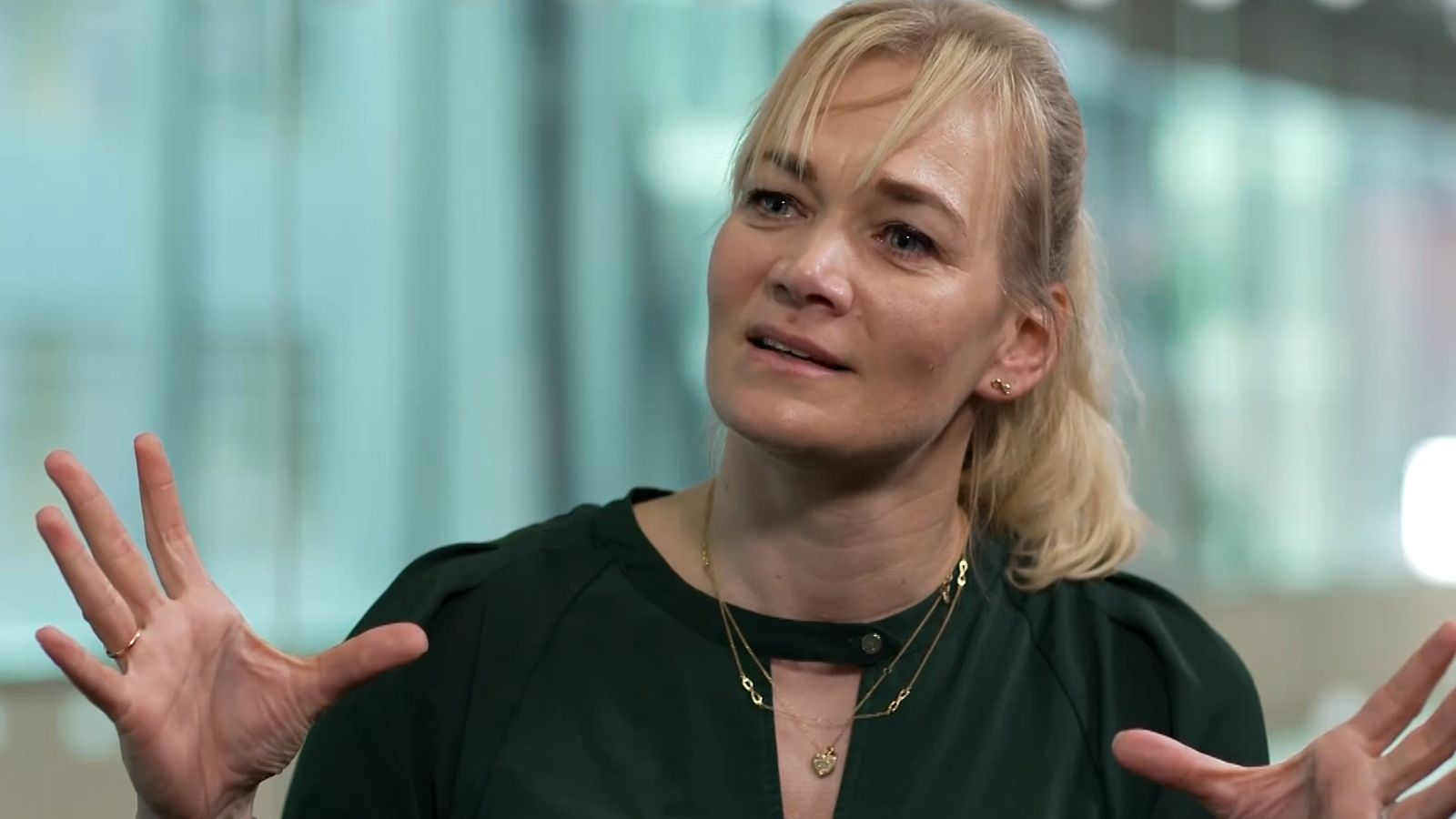
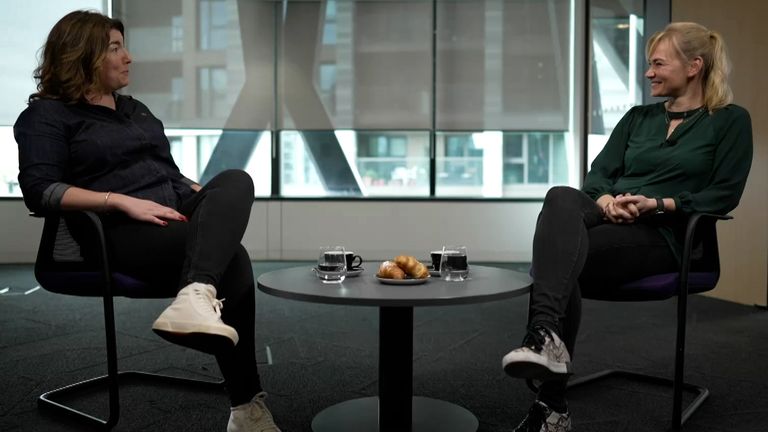
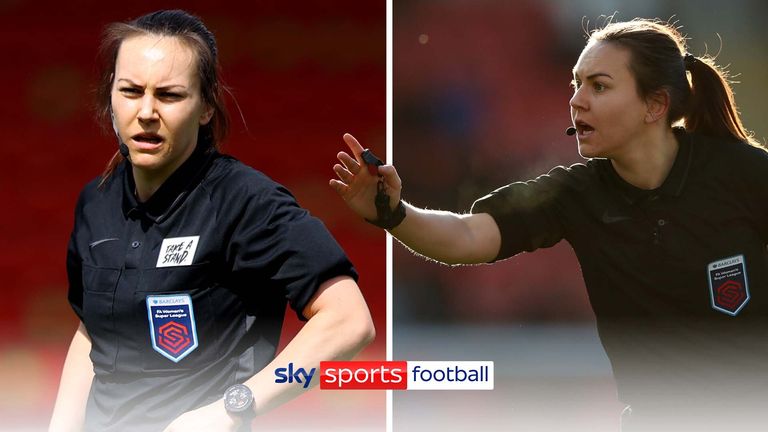
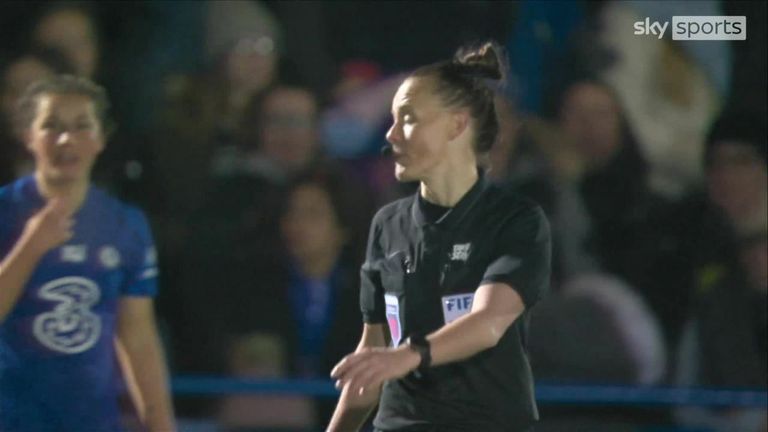
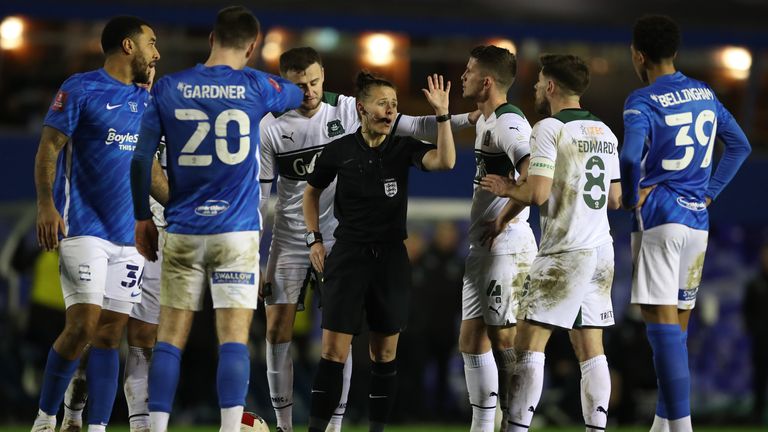
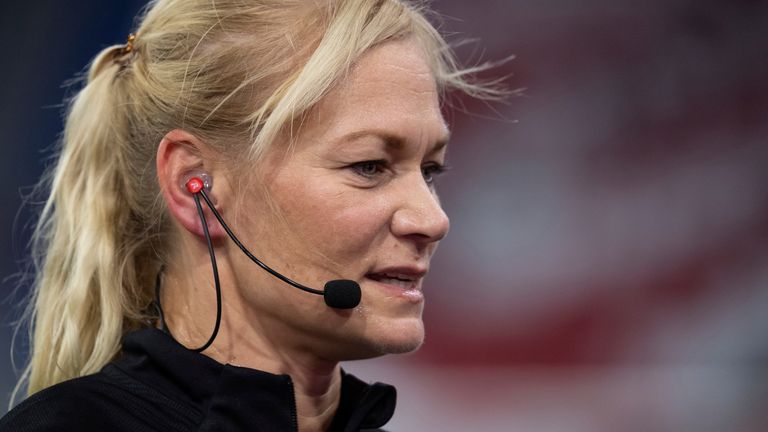

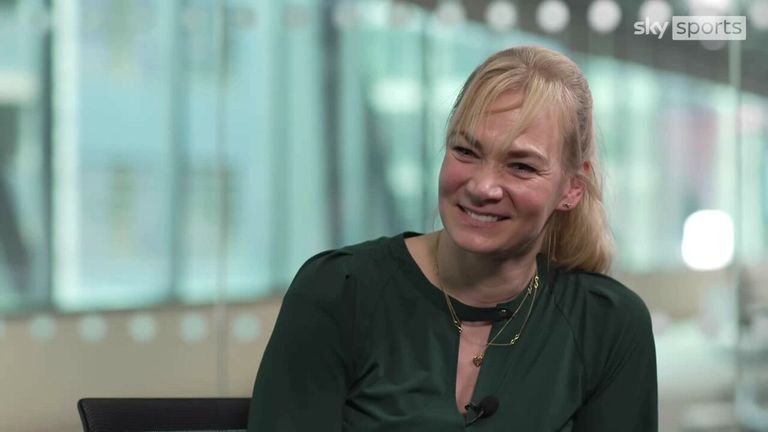
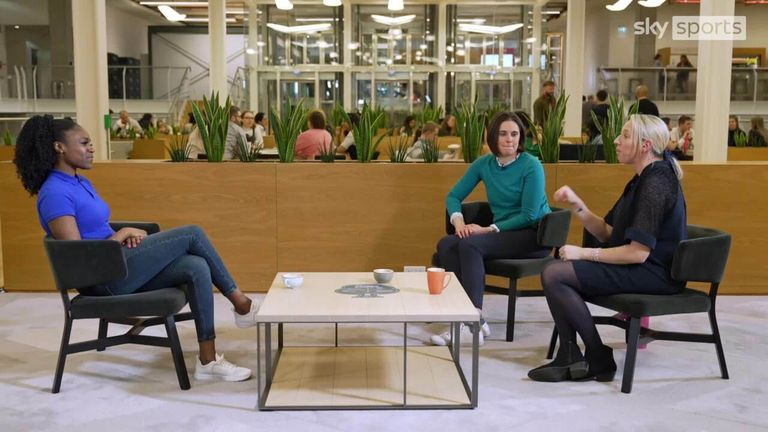

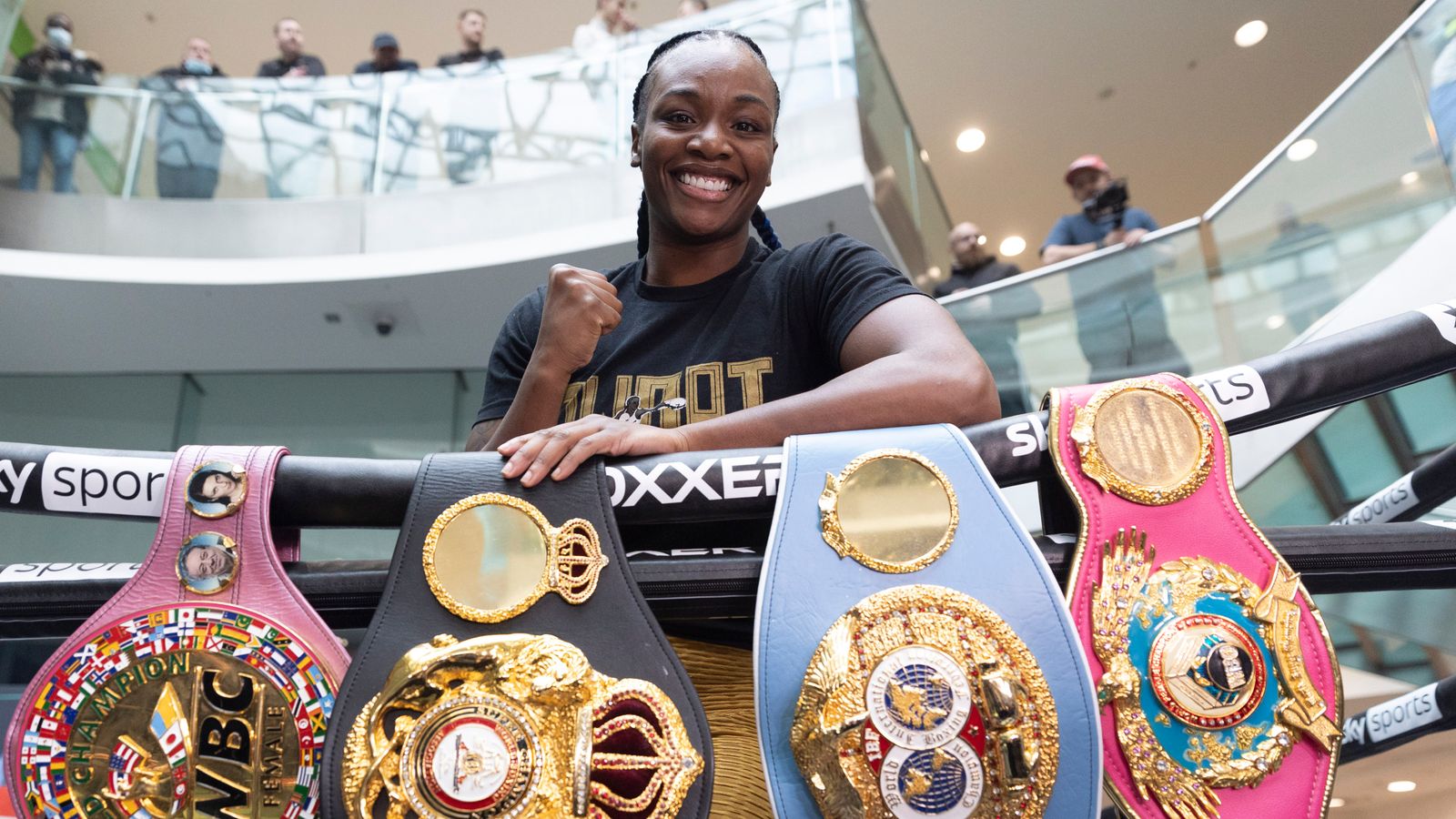

Pingback: Online medicatie kopen zonder recept bij het beste Benu apotheek alternatief in Amsterdam Rotterdam Utrecht Den Haag Eindhoven Groningen Tilburg Almere Breda Nijmegen Noord-Holland Zuid-Holland
Pingback: lsm99
Pingback: image source
Pingback: สล็อตเว็บตรง
Pingback: fazele lunii 2024